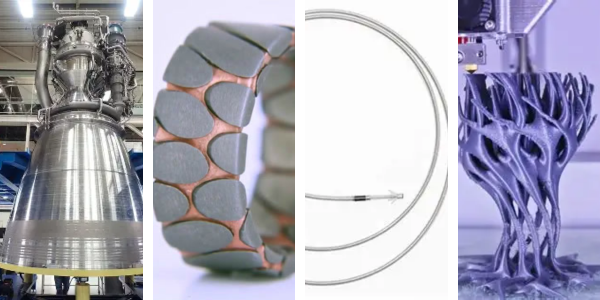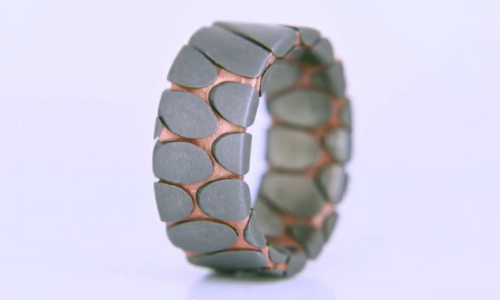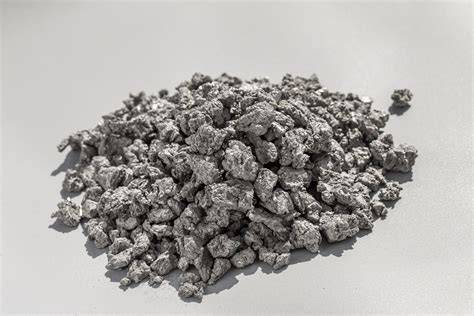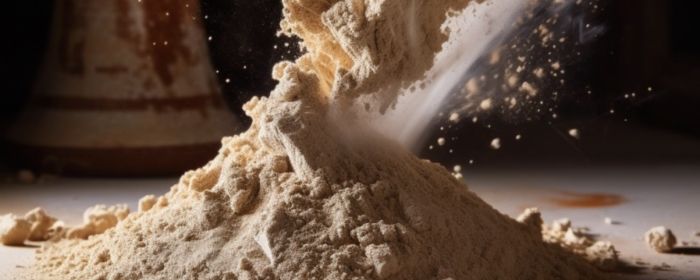

Spherical niobium powder is a powder of a metal made primarily of niobium (Nb) and has distinctive physical and chemical properties. Niobium is a ductile, silver-gray transition metal with atomic number 41 and is widely used in aerospace, electronics, medicine, etc. Through special manufacturing processes such as vapor deposition and plasma spheroidization, spherical niobium powder can form nearly perfectly spherical particles. This not only enhances its processability and flowability but also its performance in applications.
.png)
Physical Properties:
1. Morphology and Structure: The particles of spherical niobium powder are spherical, and the particle size is usually between a few micrometers and tens of micrometers. The spherical shape provides it with excellent flowability and packing density, which is suitable for high-precision manufacturing technologies such as precision casting and 3D printing.
2. Density: The Theoretical density of niobium is 8.57 g/cm³, and spherical niobium powder comes very close to this value, depending on particle size and method of production.
3. Melting Point: Niobium has a very high melting point of 2468°C, which reason why spherical niobium powder can provide stability as well as mechanical strength even for high-temperature applications.
4. Electrical and Thermal Conductivity: It possesses better electrical and thermal conductivity, and hence it finds widespread applications in electronic devices and high-temperature uses.
Chemical Properties:
1. Corrosion Resistance: Niobium possesses excellent resistance against most acids and alkalis at room temperature, i.e., nitric acid, hydrochloric acid, and hydrofluoric acid. This makes spherical niobium powder very suitable for chemical industries and corrosive environments.
2. Oxidation Resistance: A dense oxide film is developed on the surface of niobium when it is exposed to air, which shields it from further oxidation and enhances its anti-oxidation property.
3. Chemical Reactivity: While niobium is very stable at normal conditions, it becomes reactive at elevated temperatures, and it reacts with most non-metals to produce precious compounds. For instance, on heating in nitrogen, it produces niobium nitride (NbN), while in carbon, it produces niobium carbide (NbC).
This specially designed material performs key functions throughout emerging industries due to its superior properties.
1. Aerospace: Spherical niobium powder is used for manufacturing high-performance alloys, such as nickel superalloys. This type of alloy finds extensive application in aircraft engine and rocket propulsion systems.
2. Electronics Industry: Niobium's low resistance and high conductivity enable it to be an ideal material for capacitors, superconductors, and other electronic devices.
3. Medical Field: Niobium's biocompatibility and resistance to corrosion enable its use in medical devices and implants, such as cardiovascular stents and orthopedic implants.
4. 3D Printing: Spherical niobium powder's processability and high flowability render it an ideal material for 3D-printed metallic parts, especially in the manufacture of intricate geometries.

The worldwide demand for spherical niobium powder is expected to grow tremendously in the coming years because of expansion in aerospace, additive manufacturing (3D printing), and future generations of electronics. As industries call for increasingly more high-performance, lightweight, and corrosion-resistant alloys, niobium's unique properties position it as a critical material for the technologies of tomorrow.
1. Expansion in Additive Manufacturing: With metal 3D printing accelerating at a high level, spherical niobium powder will be increasingly utilized due to its excellent flowability and sintering capabilities, assisting in the production of intricate, high-strength components for aerospace and medical applications.
2. Emerging Superconductor Applications: Niobium superconductors are essential in quantum computing and advanced medical imaging (e.g., MRI machines). Continued development of niobium-tin (Nb₃Sn) and niobium-titanium (NbTi) alloys can further boost demand.

niobium-titanium-superconductor-alloy
Stanford Advanced Materials (SAM) offers spherical niobium powders and niobium alloy powders. If you are interested, please contact us through Get A Quote.
1. What is the difference between spherical and irregular niobium powder?
Spherical niobium powder possesses better flowability, packing density, and sintering properties. It is best suited for 3D printing and precision casting.
2. Can spherical niobium powder be used in biomedical implants?
Yes. Niobium is a biocompatible element of great chemical stability and satisfactory electrical conductivity. It has been utilized in the medical sector for cranial defect repair, bone tissue substitutes, and pacemaker leads. Apart from this, research is also underway for bioactive surface modification of niobium.
3. What industries rely most on spherical niobium powder?
The most significant ones are aerospace (superalloys), electronics (capacitors, superconductors), medicine (implants), and additive manufacturing (3D printing).
4. How is spherical niobium powder made?
Common methods involve plasma atomization, gas atomization, and chemical vapor deposition (CVD), which yield extremely spherical, uniform particles.
5. What are the primary challenges of using spherical niobium powder?
High production cost, inclination towards oxidation at very high temperatures, and need for special handling in powder-based manufacturing processes.
6. Will niobium replace other refractory metals like tungsten or tantalum?
No. While niobium has a slight edge in terms of weight and corrosion resistance, tungsten still dominates in uses that involve extreme heat, and tantalum is used in high-performance capacitors.
7. Is spherical niobium powder recyclable?
Yes, machining and 3D printing excess powder can often be recycled, but only when appropriate sieving and decontamination have first been used to ensure quality.

United States
.png)



